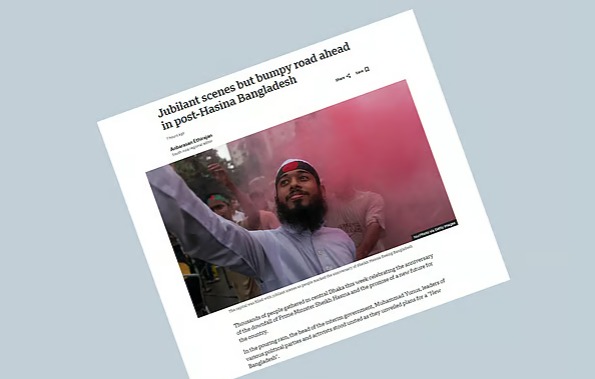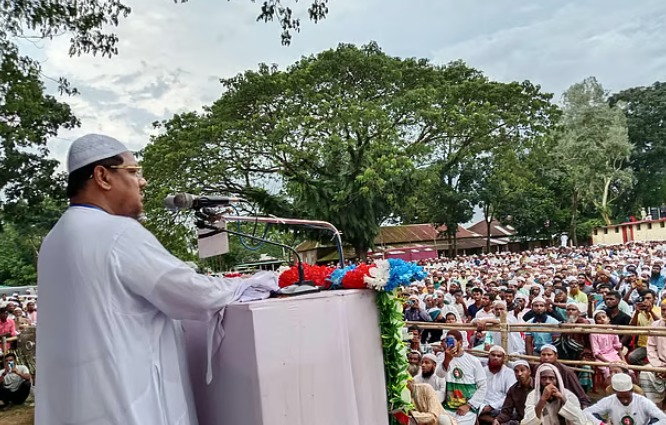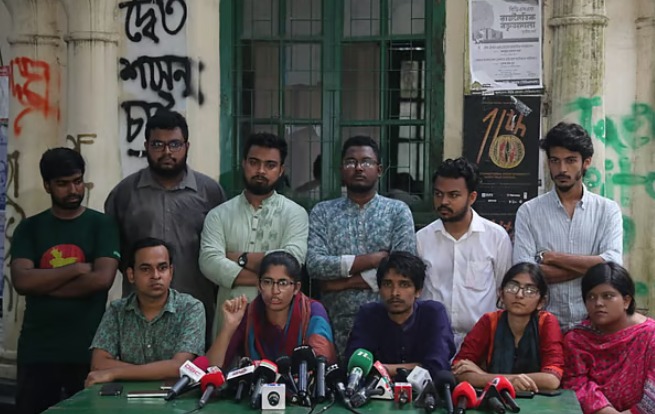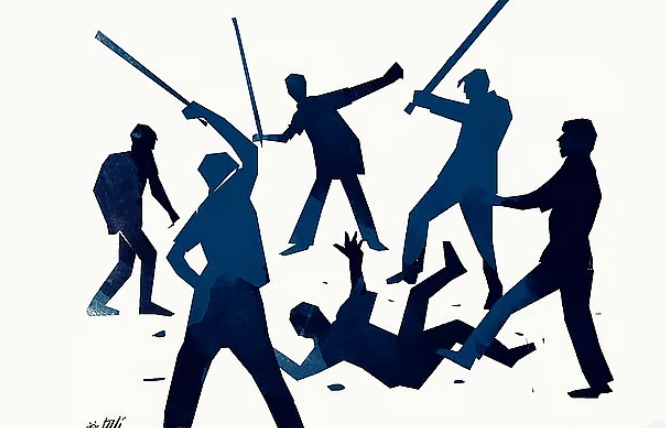Desk Report,
Hasina: Joy in northern Bangladesh after a year, tough road ahead
Thousands of people gathered in the heart of Dhaka this week to mark the anniversary of the fall of Prime Minister Sheikh Hasina and to pledge a new future for the country.
Hasina: Joy in northern Bangladesh after a year, tough road ahead
In torrential rain, the head of the interim government, Professor Muhammad Yunus, and leaders and activists from various political parties stood together to announce plans to build a “new Bangladesh.”
Across the country, people waved national flags and took part in concerts, rallies and special prayer meetings. Some activists are calling it a “second independence” for the predominantly Muslim country of 170 million people. But this joyous scene is not the whole story of the past 12 months.
Human rights groups say the period has been marked by lynchings, mob violence, revenge attacks and a resurgence of religious extremism, which could derail the country’s path to democracy.
Meanwhile, the former prime minister, who was dramatically removed from power, is living in exile in neighboring India. And he is watching from there. She denies her role in the deadly crackdown and refuses to return to face charges of crimes against humanity.
Women’s rights activist Shirin Haque told the BBC: “I think we have seen a regime change, not a revolution. Misogyny is still there, male dominance is unchallenged.”
Shirin Haque headed the interim government’s Women’s Affairs Reform Commission, which recommended social and political changes that reflected the goals of democracy and pluralism.
The 10-member commission submitted its report in April this year. It proposed ensuring gender equality, establishing women’s inheritance and divorce rights, criminalizing marital rape and protecting the rights of sex workers.
The following month, thousands of hardliners took to the streets to protest the recommendations. They said they were un-Islamic and that men and women could never be equal.
Led by Hefazat-e-Islam, the protesters demanded the dissolution of the Women’s Commission and the punishment of its members. The interim government also has a representative from the Hefazat-e-Islam group on its advisory council. There has been no public discussion of the commission’s proposal since then.
“Despite the torture we have suffered at the hands of the Hefazat-e-Islam group, the interim government has not given us enough support,” Shirin Haque said. Professor Muhammad Yunus’ office did not respond to a request for comment on the allegations.
Activists say the protest is just one example. Hardliners, who were under pressure under Hasina, have now become emboldened. They have opposed women playing football in some areas, asked female celebrities to stop participating in commercial events, and harassed women in public because of their dress.
Not only women, but in the past year they have also demolished numerous shrines of minorities such as Sufi Muslims. Many, like Shirin Haque, are looking to the future. But Bangladesh is still grappling with the past.
There is widespread anger against Sheikh Hasina’s Awami League government, accused of extrajudicial killings, disappearances, and atrocities in suppressing dissent.
“Many people wanted not only accountability but also retribution,” said David Bergman, a longtime Bangladesh observer. But he cautioned, “We cannot continue to emulate the injustices of the Awami League era.”
But that is what the Awami League claims. According to them, hundreds of supporters have been killed in mob lynchings in the past year, which the interim government denies.
Several Awami League supporters and journalists have been held in jail for months on murder charges. Courts have repeatedly denied their bail. Critics say there has been no proper investigation into the charges and that they have been detained simply for supporting the Awami League.
Student leader Nahid Islam led the protests and served as an advisor to the interim government. “It takes time to restore stability after a major movement. We are now in a transition phase,” he admitted.
Nahid dismissed fears of a growing Islamist influence, saying it was part of a long-standing cultural struggle. But there are positive sides. Many believe that the interim government has kept the economy stable. Contrary to fears, the banking sector has survived.
Bangladesh has paid off its debt, kept food prices fairly stable, and maintained foreign exchange reserves of $30 billion due to remittances and international loans. Exports are also stable. Apart from that, there are some things that cannot be measured.
Nahid Islam said that after Hasina’s fall, “a democratic environment has been created, now everyone can freely express their opinions,” which is a matter of celebration for a country built on a history of political instability, military coups, assassinations, and intense competition. However, some are questioning this.




